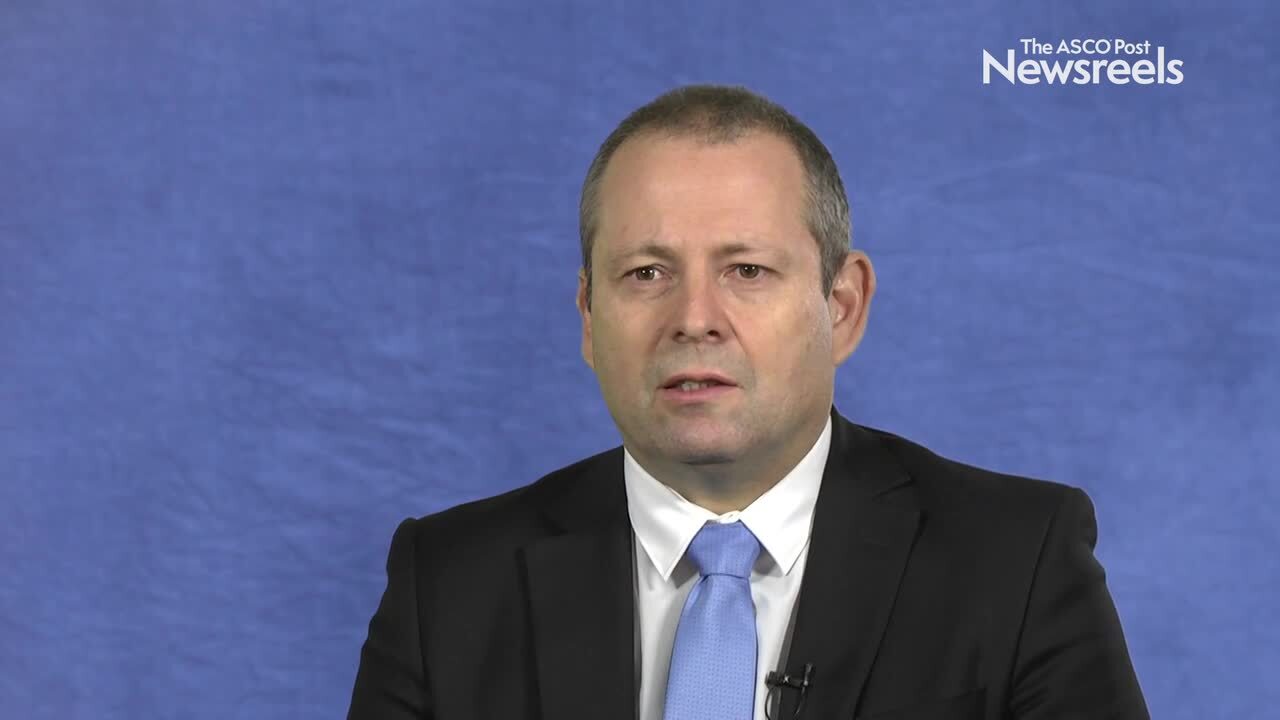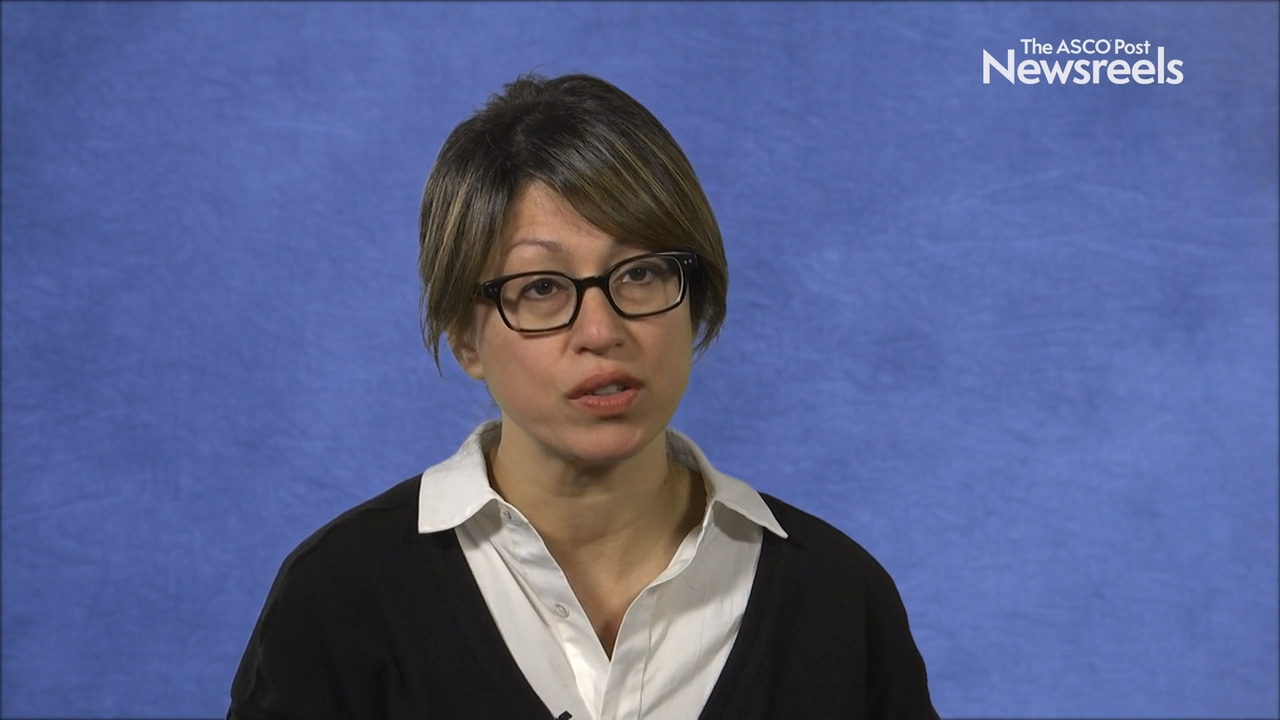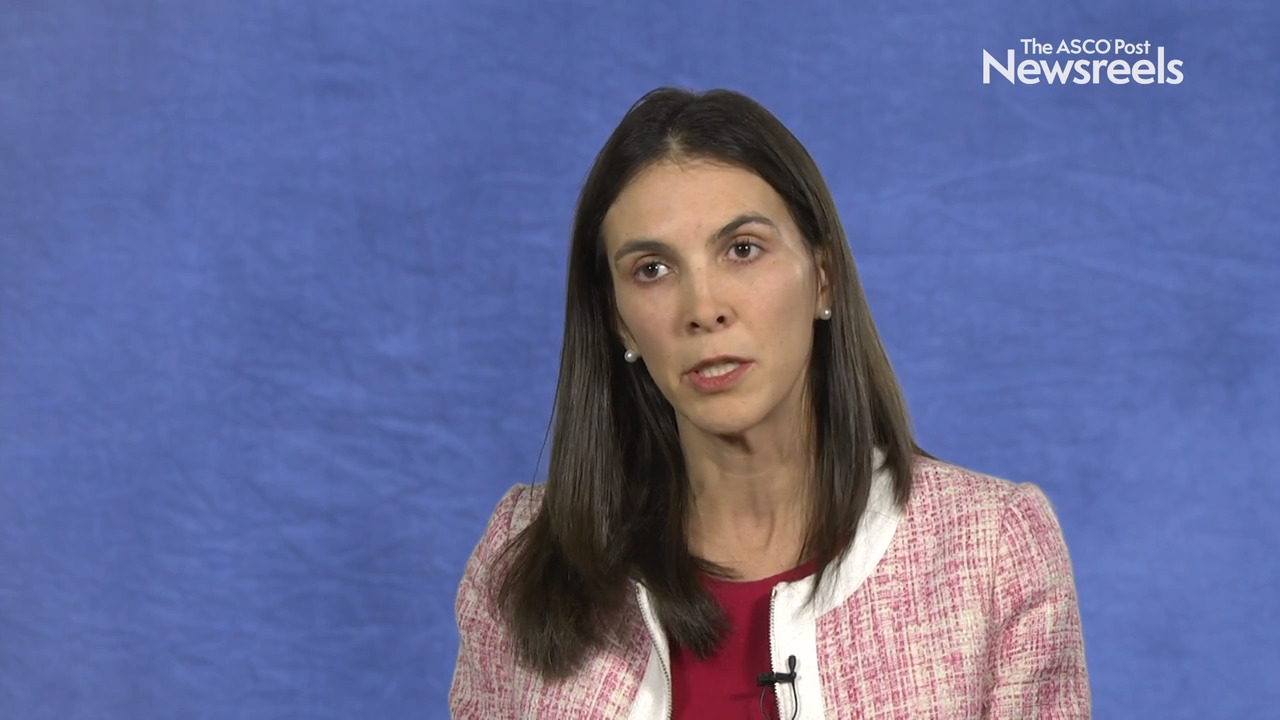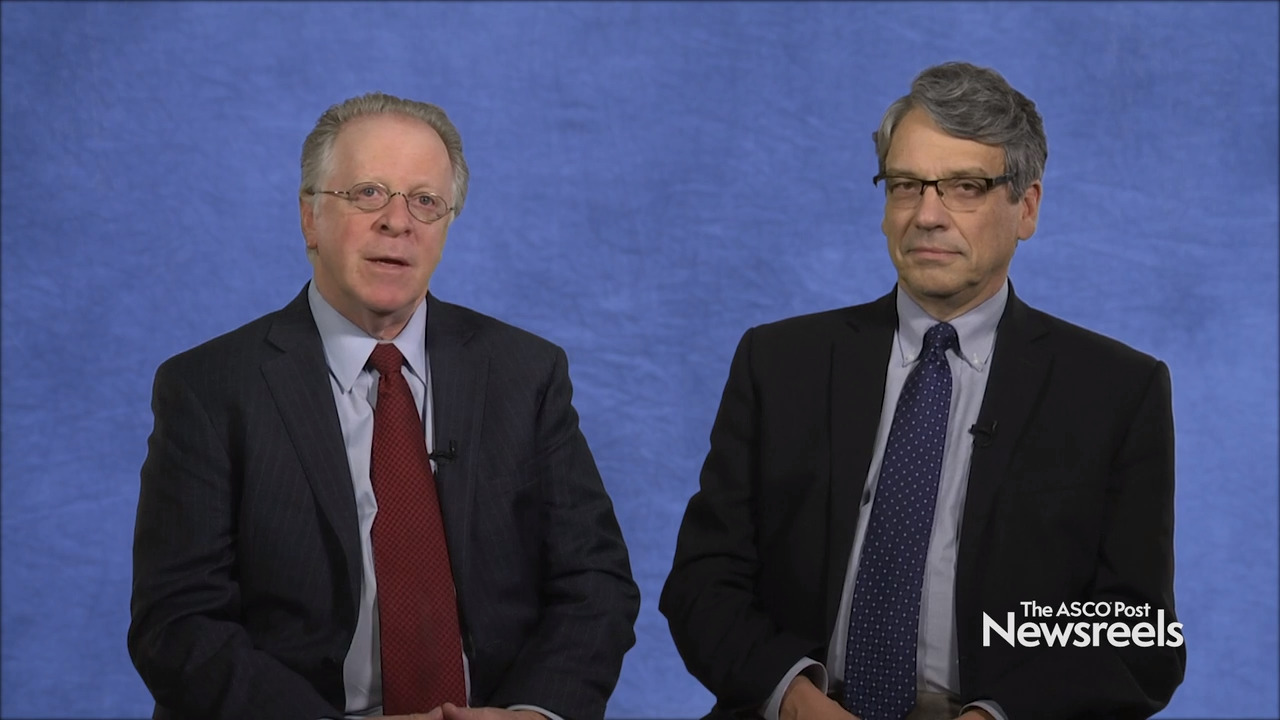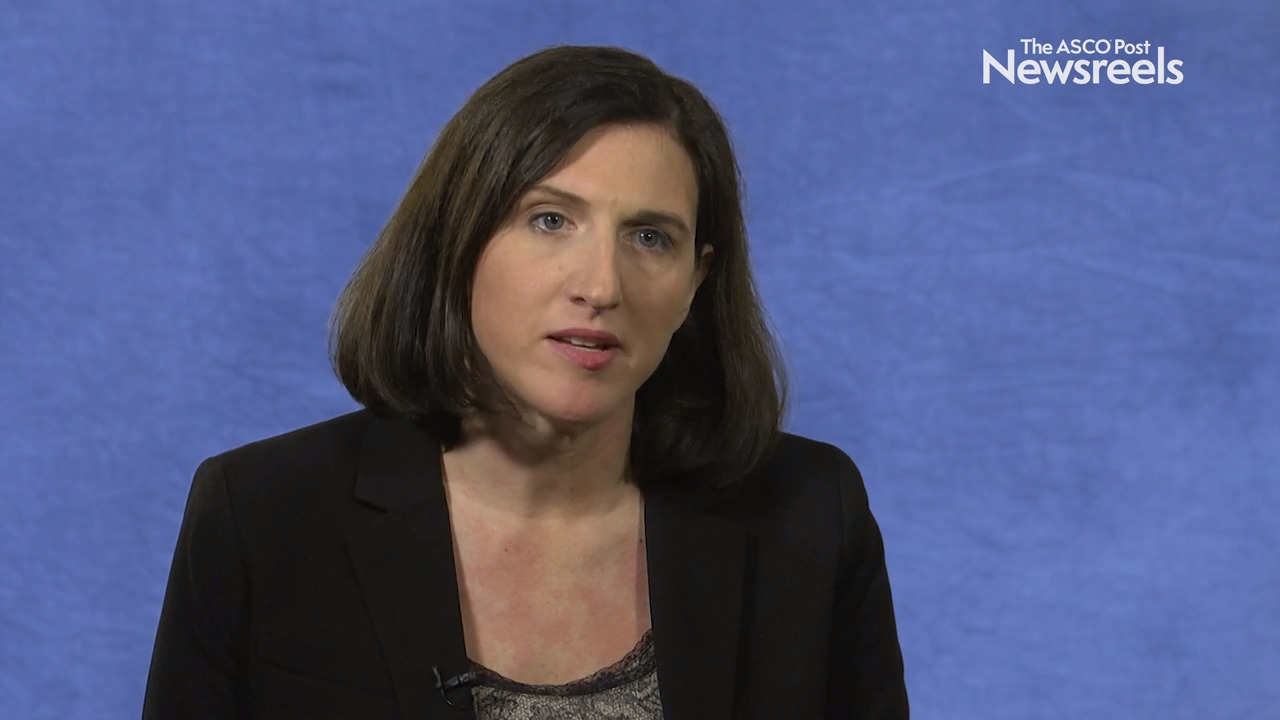Zaida Morante, MD, on Triple-Negative Breast Cancer: Delaying Adjuvant Chemotherapy
2018 San Antonio Breast Cancer Symposium
Zaida Morante, MD, of the Instituto Nacional de Enfermedades Neoplasicas, discusses retrospective study findings showing the importance of starting adjuvant chemotherapy for people with triple-negative breast cancer within 30 days of surgery (Abstract GS2-05).
Xavier Pivot, MD, PhD, of the Paul Strauss Cancer Center, discusses final study findings comparing 6 and 12 months of trastuzumab in adjuvant early breast cancer (Abstract GS2-07).
Shanu Modi, MD, of Memorial Sloan Kettering Cancer Center, discusses study findings from a large phase I study on trastuzumab deruxtecan in patients with low HER2-expressing breast cancer (Abstract P6-17-02).
Kathryn J. Ruddy, MD, MPH, of the Mayo Clinic, summarizes a special spotlight session that included discussion of interventions to improve quality of life and the importance of lifestyle in the prevention of cancer and cancer recurrence.
Andrew D. Seidman, MD, of Memorial Sloan Kettering Cancer Center, and Charles E. Geyer, MD, of Virginia Commonwealth University, discuss phase III study findings on ado-trastuzumab emtansine vs trastuzumab as adjuvant therapy in patients with early HER2-positive breast cancer with residual invasive disease after neoadjuvant chemotherapy and HER2-targeted treatment (Abstract GS1-10).
Allison Magnuson, DO, of the University of Rochester Strong Memorial Hospital, discusses the development of a chemotherapy toxicity risk score that is associated with dose reduction as well as reduced respiratory distress and fewer hospitalizations (Abstract GS6-04).
